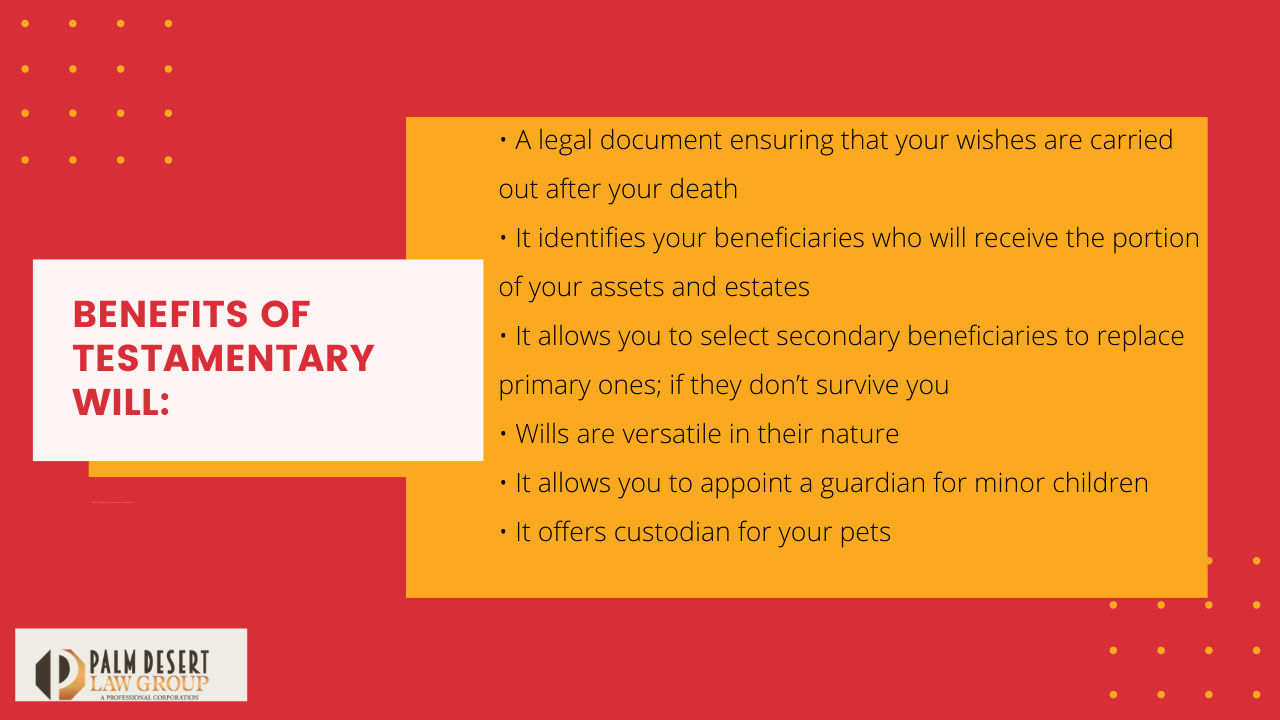“You can’t take anything with you down the grave.” Most of us are familiar with this phrase, but only a few of us are prepared for it. You may not be able to control your assets once you are six feet under the ground. But you surely can take steps in your lifetime for effectively managing your assets and properties once you’re gone.
1. The Do Nothing Plan
Doing nothing will only create obstacles and significantly reduce benefits for your heirs that they otherwise would have enjoyed. While you opt for a “do nothing” plan doesn’t mean there isn’t any viable solution for you. The state of California offers you an “Intestacy Plan” designed for individuals who die without a will but owns assets greater in value than the outstanding debts.
In such a scenario, the state or probate court distributes the estate of the deceased to beneficiaries whom it deems suitable. Typically, the property goes to the surviving spouse than to children, extended relatives, and/or descendants, as per the general law. If there are no available heirs, then the property goes to the state.
The rules of intestacy vary from state to state. Also, they are highly complex, making it difficult to disburse your property. The problem with the “do nothing” plan is that you allow a complete stranger to take a whole lot of decisions on your behalf.
In the event you become incapacitated or end up in the hospital, it’s up to the judge to decide who’s going to make healthcare decisions for you. This can cause certain delays and potential conflicts for your loved ones.
Once you pass away, then the state decides who is going to be the guardian of your children and who is going to be the executor. It is the least expensive plan during your lifetime but the most expensive after your demise.
Therefore, financial planners and advisors suggest making a will or establishing a trust for asset distribution among beneficiaries after your demise.
2. The Basic Will
What is a testamentary will?
It is a ‘traditional will,’ also known as the last will or a testament. This legal document clearly states the transference process of the property and assets after the death of the will holder or testator. The testamentary wills also declare the executors and guardians for minor children.
The executors deal with the distribution of the assets and establish trust for the beneficiaries. Anyone over the age of 18 years with a sane mind can draw up a legal will. It is advisable to make a will in front of a trust or estate lawyer to ensure the will is worded accurately and as per the state laws.
Non-notarized holographic or handwritten wills are acceptable in few states only. To bring your will into effect, you go through a court process that is called a probate period, which in California lasts for 12-18 months.
Benefits of Testamentary Will:
Cons of Testamentary Will:
3. The TRUST based Plan
What is a trust?
A trust comprises of three acting bodies: trustor, trustee, and beneficiary. It is a fiduciary body that lets a trustor gives authority to a trustee in controlling a property or asset for the beneficiary. The trust provides legal protection to the assets to ensure the distribution and execution of the will as per the wishes of the trustor.
Establishing a trust allows you to save time, reduce paperwork, and avoid inheritance taxes, in some cases. The trustor creates the body to decide how and when the assets or its parts will be distributed to the beneficiaries.
The rules of the trust are based on the terms and conditions it was built on. In some states, old beneficiaries can also become trustees.
Will and trust each have their pros and cons but can also be used simultaneously for maximum efficacy in estate planning. Let’s review in details the benefits of each as an individual entity:
Benefits of Trust:
- Trust allows you to manage your property and assets during your life as well as after death
- Doesn’t require a legal will
- Protects your assets against creditors
- Minimize taxes
- Distribute assets bypassing probation period
Cons:
- Can’t designate a guardian
- Can’t hire an executor for your properties
- Can’t include all your assets
The Benefits Of Wills Versus Trusts: Which one is best for me?
Typically, estate plans have both a will and trust, but one has to be primary and serve as the foundation of the plan. The most basic method is to own the assets and properties under your name and define its distribution through a will.
Otherwise, you can design a revocable living trust to control all your assets, and its terms can decide the distribution of the assets. However, none is superior to the other but depends on your personal needs. The difference between a will and trust, as a primary vehicle, is the probate process.
Through a will, the property needs to undergo a probate period, which has its own advantages and disadvantages. It is considered to be an expensive and time-consuming process. Additionally, probate also affects your privacy. When the will is in the court, it is available for public scrutiny for check and balance. But it also increases the chances of challenging the will in court.
On the contrary, trusts are less likely to be challenged as the details aren’t public. Also, the laws and terms of the trust are less law concerning, making it difficult to challenge. But the process for transferring assets through a trust is also quite time-consuming due to the complex legal formalities.
You will also require changing the deeds to the real estate as you acquire more properties. Secondly, it is much more expensive to set up a trust rather than designing a will. However, on your demise, the trustee automatically takes charge of your property management, which is not possible through a will.
Every estate requires a will and one trust for smooth operations, but you must hire an estate planner to identify the primary vehicle for asset management. Palm Desert Law Group can help you determine the goals, costs, efficiency, privacy, and many other variables to decide which will work best for you!
We offer a complete spectrum of legal services for business owners and can help you make the wisest choices on how to deal with your business throughout life and in the event of your death. We also offer you a LIFT Your Life And Business Planning Session, which includes a review of all the legal, insurance, financial, and tax systems you need for your business. Schedule online today.





